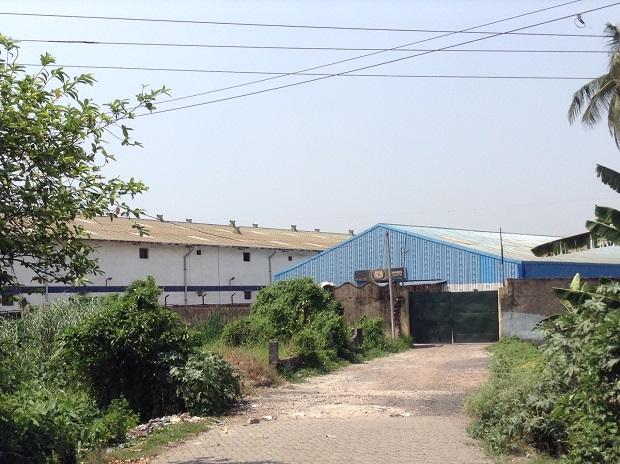About 200 units between Belgachia on the national highway to Howrah shut down at 5pm on March 23 when West Bengal went indoors to contain the spread of coronavirus, two days before India shuttered for three weeks. The scene at the small and medium factories along Benaras Road is now familiar across India: security guards, neatly parked trucks and workers who live nearby idling in alleys.
Jaladhar Singh, an employee of a spare parts unit, got his salary the weekend before the lockdown. It was the last time he heard from his employer. The unit employs about 200-250 people, but will it pay for the lockdown period? That question is foremost on Singh’s mind.
Singh is better off than Dipak Mondal, a contractual employee at a fabrication unit paid weekly. The money was credited in his bank account. Mondal got a payment for the first week after the lockdown, but since then he has been checking his phone for SMS alerts from the bank without luck.
Howrah is the hub for castings, machine parts, forged and assembled parts and it caters to India and the world. A back-of-the-envelope calculation would put annual exports worth Rs 3,000- Rs 3,500 crore by 400-500 units in the region. And that’s just units that export.
Singh and Mondal are at the bottom of the business order, but in Howrah the lockdown is hurting factory owners as much. Export orders have stopped, resulting in huge losses for these units.
Kailash Agarwal’s company, JPK Metallics, makes manhole covers that are supplied to the Middle East, Europe and Ireland. Agarwal is stuck with inventory and he fears that when the lockdown ends export orders will be cancelled. He has lost Rs 15 lakh in a month.
Agarwal doesn’t think invoking force majeure will help. “What good will it do if the order is cancelled,” he said. JPK has about 150 contractual employees. The contractor has been paid a lumpsum amount to be paid to the employees. “This is not their fault,” he said.
Ravi Sehgal, chairman of the Engineering Export Promotion Council India, said there could be huge cancellation of export orders if the units don’t resume work after April 15. “China, Brazil, Turkey and Mexico are countries where business is not affected. In the US, too, while the country is under lockdown, industry is running. West Bengal can take the lead by allowing manufacturing units for exports, especially engineering, to resume operations with 50 per cent attendance. Howrah could be the test case,” said Sehgal

In the last 5-6 years, at least 200 units have shut shop due to labour shortage and liquidity crunch
Sehgal said if Indian engineering fails to meet requirements, supply orders could to other countries. “April is the time when most buyers plan six months’ purchase.”
H K Sharma, who owns a fabrication unit called Dayal Engineers, doesn’t expect business to normalise promptly after the lockdown is lifted. “The next two to four months will be turbulent . This is a transaction-based industry, unless the money is back in circulation, it will not smoothen,” he said.
Sharma is referring to the cash flow cycle. Dayal Engineers makes spare parts for foundries, which too are in crisis. Unless a foundry pays, Dayal can’t pay vendors who supply electrodes, oxygen. It’s the cycle that needs to move.
Sharma still has to pay his labourers. He has already transferred khoraki or daily allowance directly to the accounts of his labourers. But when the unit opens, he will have to meet their demands. “I will have to arrange for money or they will go away,” he said.
Santosh Upadhyay, general secretary of Howrah Chamber of Commerce & Industry (HCCI), said most accounts in Howrah will turn into non-performing assets if the government doesn’t lend a helping hand. HCCI represents more than 1,000 traders and MSME members, and has already written to Prime Minister seeking a bunch of reliefs.
Among the reliefs sought are : waiver of interest and penalty on late filing of GST and total waiver of interest from banks on term loans/ working capital loans for entire lock down period.
The chamber also wants the interest rate to be at a bare minimum of six per cent for six months and an advice to the Railway Board and plants running under the government sector not to charge interest for delayed payment on materials purchased in March.
For Howrah units, the coronavirus is a fresh crisis. In the last 5-6 years, at least 200 units have shut shop due to labour shortage and liquidity crunch. Still, there are about two lakh workers directly and indirectly engaged in the iron and steel units here.


